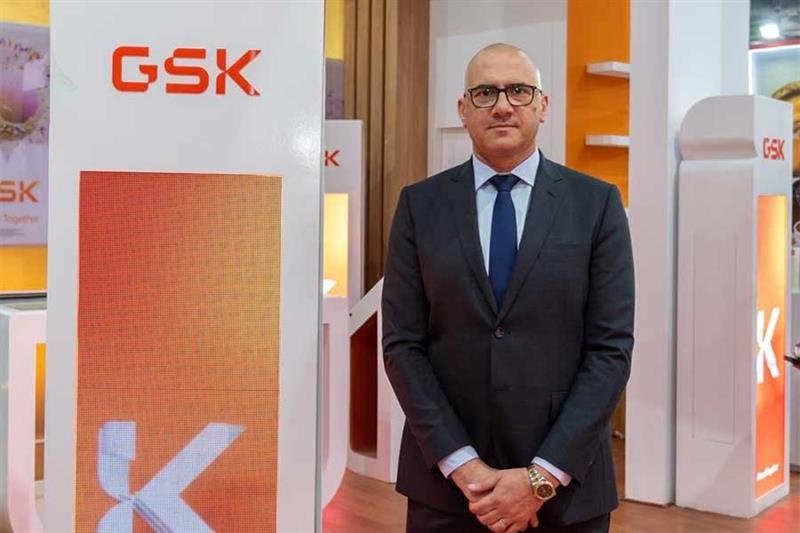Numerous free trade agreements between Egypt and African nations serve as further evidence that Africa is an important strategic depth for Egypt.

The second edition of the Africa Health Exhibition and Conference, which was presented in a distinguished manner, was attended by Dr. Mohamed Al-Dababy, the CEO and Managing Director of GlaxoSmithKline (GSK). He expressed his pride and gratitude for participating in the event.
He praised the coordinated efforts of the state organisations in charge of planning and supporting this event, which was a resounding success and outperformed its first edition’s accomplishments, placing it among the most important conferences ever held in Egypt.
Dr. Al-Dababy emphasised the importance of holding this event under President Abdel-Fattah Al-sponsorship. Sisi’s President Al-Sisi, the Minister of Health, the Head of the Egyptian Drug Authority, and the Head of the Unified Procurement Authority were all present for the opening session.
This, he continued, is evidence that the Egyptian state, which consistently plays an effective and significant role in a variety of fields across many African countries, places a high priority on the healthcare sector on the African continent.
Numerous free trade agreements between Egypt and African nations serve as further evidence that Africa is an important strategic depth for Egypt.
Dr. Al-Dababy emphasised that Egypt has a sizable competitive advantage in the pharmaceutical sector that can be used to help other African nations that struggle with a variety of healthcare issues but also offer great potential. The Egyptian government takes pride in its broad knowledge and track record of success in raising healthcare standards to fight a variety of diseases.
The Presidential Initiative for Women’s Health, for instance, is one of the most significant programmes that has significantly improved Egyptian women’s health awareness and interest, particularly with regard to early tumour detection. This is crucial for raising survival rates and decreasing mortality rates and for increasing chances of beating the disease.
He continued by saying that both domestic and foreign pharmaceutical companies, as well as prominent individuals and industry pioneers, all expressed a great deal of interest in the Africa Health Exhibition and Conference. He emphasised that Egypt was successful in organising this event, which aims to improve the healthcare system in Africa by giving all professionals and stakeholders with an interest in healthcare a forum for sharing experiences.
GSK participated in a dialogue seminar on vaccines and immunisation, which plays a crucial role in preserving the health of society and its positive effect on the economy.
Dr. Al-Dababy emphasised that preventing disease exposure saves the state and society the time, money, and resources that would otherwise be needed for recovery and treatment.
Dr. Al-Dababy asserted that the ExCon had been instrumental in fostering business ties and opening up new markets for the various participating companies from Egypt and Africa.
A significant step towards promoting the localization of the pharmaceutical industry in Africa, the event offered a rare chance to display the capabilities and cutting-edge manufacturing technologies used in the Egyptian pharmaceutical factories of various companies.
The Africa Health ExCon is a crucial ally in fortifying ties and establishing business partnerships with the continent of Africa.
It also emphasises Egypt’s dominant position in Africa’s pharmaceutical industry. Numerous African nations are represented at the ExCon, offering chances for cooperation between exhibiting businesses and African delegations.
The exhibition and conference’s second iteration improved investor interaction. According to Dr. Al-Dababy, Africa is a significant market for the Egyptian government because of the continent’s high demand for new technologies and medications.
GSK is one of the most significant multinational corporations operating in the Egyptian pharmaceutical industry and is the owner of two of the industry’s largest factories.
According to Dr. Al-Dababy, GSK produces more than 180 million packages each year to satisfy the needs of the pharmaceutical industry. The business actively promotes Egypt’s localization of the pharmaceutical sector.
He added that the company’s long-term goals include increasing investments by providing a wide range of vaccines and cutting-edge drugs that make use of the most recent technologies.
These products include those that have just recently been made available on a global scale in a variety of specialties, such as oncology treatments, vaccines for diseases like shingles, and medications for chest conditions.
He continued by saying that he is excited for the third edition of the Africa Health Exhibition and Conference, which is anticipated to be equally as successful as the first and second editions.
In order to revitalise relations with African nations and support the state’s vision for the development of the health sector in Egypt, he stated that GSK will work diligently throughout this year to improve ways of joint cooperation with the relevant authorities.